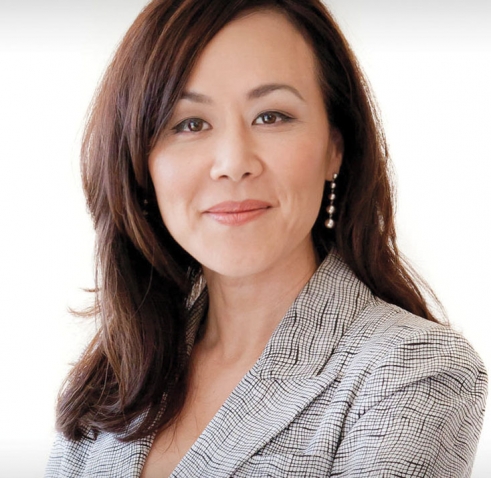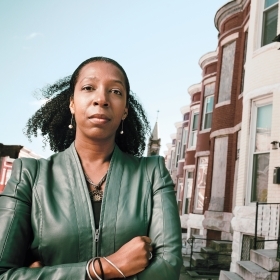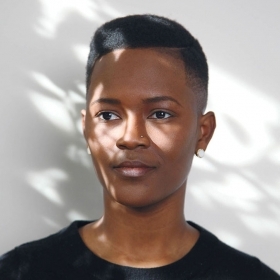Julia Yoo ’92 remembers the moment she decided she needed to change the direction of her career path. “I was stuck in really bad traffic in Seoul,” recalls Julia, “and I started to see people walking who were passing my cab. It had been 20 minutes, so people were walking faster than the cab was driving. For me, it was like a symbol of my life at that point, like I was stuck and not going anywhere.”
Julia was working for Samsung in Seoul at the time, and she felt that her growth was stymied as she approached the glass ceiling. Soon after, during a trip back to the States to visit her parents, Julia decided to take the LSAT on a whim, and eventually was accepted to and enrolled in the University of Colorado law school. That was the start of the unexpected path that has led to her rewarding job today, as newly appointed president of the National Police Accountability Project (NPAP), an arm of the National Lawyers Guild.
During law school, Julia’s interests began to crystallize while she volunteered at a few different community organizations that provided legal services to individuals in prisons and jails. Working with women incarcerated at the Denver Women’s Correctional Facility, Julia learned about the lack of services and attention afforded to women in prison and girls in juvenile facilities.
“That’s really what got me started,” says Julia. “But even after I became a lawyer, I didn’t think that I was going to practice law in that way. Then I made a couple of visits just to provide some basic information, not to litigate on their behalf or run a nonprofit, but it just … turned into a whole life.”
Julia’s current role at NPAP is an extension of that early legal work. NPAP is the largest civil rights attorney organization in the country dedicated to protecting the rights of individuals in their encounters with police and detention facility personnel. Its work includes providing amicus support to member attorneys, engaging in grassroots organizing and supporting other grassroots groups, and offering expertise to elected officials as they draft legislation.
Julia is entering into NPAP’s presidency at a time when public interest in ending police violence—and even abolishing the police—is higher than ever. She notes that last summer’s uprising and the ongoing conversations in its wake have created new opportunities for NPAP. Julia is hoping that under her leadership, the organization will forge deeper coalitions with faith-based organizations and other civil rights groups. She also intends to oversee the creation of a national database of police misconduct to better support the work of NPAP’s member attorneys who litigate on behalf of those who have been victimized by law enforcement.
Julia is also hopeful that legal services will be extended to victims of police violence who sit outside of the communities that typically dominate public discourse. She notes that this past year, activists rightfully shone a light on the death of Breonna Taylor, and in doing so, opened up more conversations about police violence against Black women. Julia also says that there’s not enough advocacy for the trans community, despite the fact that it experiences alarming rates of violence at the hands of police.
NPAP does not provide direct legal aid to victims of police violence, but Julia herself has had many trans clients throughout her legal career. Julia says that keeping up with those clients and seeing their personal development are some of the most meaningful parts of her career—not a single case or a particular multimillion dollar settlement.
“Maybe because I represented so many young women throughout my career, to see them grow into themselves and become the women that they always were meant to be is a joy,” says Julia. “If anything brings me joy about my career it is the privilege of watching my clients blossom and grow, and there are so many of those gifts that I’ve received over the years … it’s not just one client, but so many.”








We ask that those who engage in Wellesley magazine's online community act with honesty, integrity, and respect. (Remember the honor code, alums?) We reserve the right to remove comments by impersonators or comments that are not civil and relevant to the subject at hand. By posting here, you are permitting Wellesley magazine to edit and republish your comment in all media. Please remember that all posts are public.